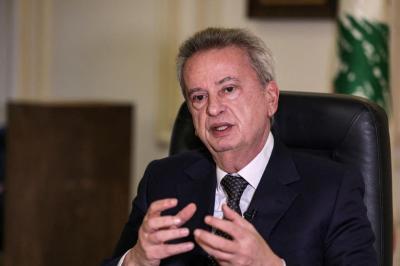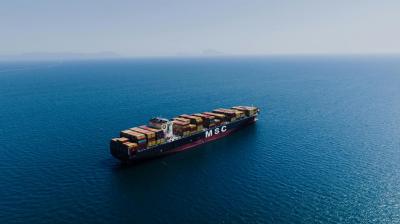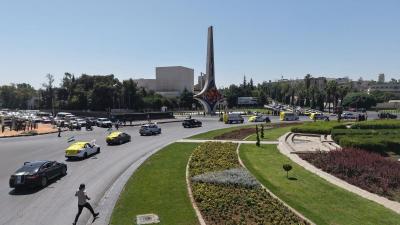In a landmark stage for Lebanon’s digital transformation, Beirut hosted the “Smart Government: Diaspora Experts for Lebanon” conference, under the patronage of Lebanese President General Joseph Aoun. During the event, Aoun officially announced Lebanon’s intention to join the Digital Cooperation Organization (DCO)—a move seen as a promising turning point toward building a modern digital state aimed at improving citizen-state relations and harnessing technology to fuel economic and administrative recovery.
Lebanon’s Digital migration: A Long-Awaited Decision
In his opening remarks, President Aoun declared, “All the country needs is to take the decision, and that decision has now been made.” For the first time, this reflects a serious political will to drive Lebanon toward digital transformation—a path it has long delayed compared to its regional neighbors. This announcement comes against a backdrop of overlapping crises in Lebanon, including financial collapse, crumbling infrastructure, and a widening trust gap between citizens and the state. In this context, Dr. Hessa Al-Hudaibi, Director-General of the DCO, emphasized: “Digital transformation is no longer a luxury—it’s a necessity to rebuild trust between the citizen and the state.” She added that the organization welcomes any country aiming to transition toward a comprehensive digital model, and Lebanon’s application will soon be presented to the DCO’s governing council.
Lebanon’s Diaspora: A Key Partner in Digital Transformation
One of the conference’s most notable aspects was the strong presence of Lebanese diaspora experts—over 500 participants from inside and outside the country. Rabi’ Al-Amin, President of the Lebanese Executives Council, told Safa News: “The diaspora is ready to support the government whenever needed,” praising the announcement of Lebanon’s intention to join the DCO and stressing the importance of parliamentary legislation to keep pace with this vision. He added: “Digital transformation is not driven by political will alone; it also requires comprehensive legislative reform.”
A Roadmap: Funding, Global Support, and Clear Planning
Administrative Development Minister Dr. Fadi Maki told Safa News that Lebanon’s digital shift is possible through modern legislation, appropriate funding, and strong public-private cooperation. He noted that, if parliament reaches consensus, Lebanon could receive up to $150 million in financial support from the World Bank and international donors by year’s end—a potential catalyst for accelerating progress. Governance expert Josephine Zgheib added that Lebanon’s digital infrastructure is already beginning to take shape. She pointed to a new agreement with Starlink to improve Lebanon’s internet services—a pivotal step in upgrading networks and expanding the country’s digital service base.
Prime Minister: Lebanon Committed to a Digital Future
In closing, Prime Minister Nawaf Salam reaffirmed the government’s commitment to “placing Lebanon on the global digital economy map,” adding that implementation has already begun. He explained that digitalization is part of a broader government strategy to modernize public institutions, enhance transparency, and streamline services.
Digital Transformation: Between Ambition and Reality
According to the World Bank’s 2024 report, countries that successfully implement digital governance systems experience:
- A 30–50% improvement in public service efficiency.
- Up to 20% reduction in corruption due to traceable electronic transactions.
- A 40% increase in citizen trust in government institutions.
Lebanon—currently ranking low on global e-governance indices—has a genuine chance to catch up with leading nations, provided it implements its plans effectively.
Arab Success Stories in Digital Transformation
The United Arab Emirates stands out as a regional model, ranked among the top countries in the UN’s “Smart Government Index.” With over 3,000 digital services available through a unified platform, the UAE has saved millions of hours and resources for both citizens and the private sector. Saudi Arabia has also made great strides, launching platforms such as “Absher” and “Tawakkalna” as part of its national transformation strategy. It aims to boost digital economy contributions to 19.2% of GDP by 2030. Qatar, too, has pursued its Smart Government Strategy since 2013, successfully digitizing most state services. This has significantly improved citizen satisfaction and reduced bureaucratic inefficiencies.
Lebanon’s Digital Transformation: Major Hurdles Remain
Despite the promising developments, Lebanon still faces significant challenges:
- Weak technological infrastructure.
- Lack of comprehensive digital legislation.
- Shortage of technical expertise in the public sector.
- Fragmented decision-making and poor coordination across state institutions.
Yet with international support, diaspora expertise, and connectivity partnerships like the one with Starlink, there are real signs of hope.
Lebanon’s decision to join the Digital Cooperation Organization is more than symbolic—it’s a historic opportunity to put the country on a path toward technological and administrative modernization. But this journey will require more than goodwill. It demands firm political resolve, urgent legislative reform, and a genuine partnership between the state and the global digital community.
The question now is: Will this conference be the spark that propels Lebanon back onto the map of Arab digital progress? Or will structural obstacles continue to overpower digital ambitions?
Please post your comments on:
[email protected]
 Politics
Politics













